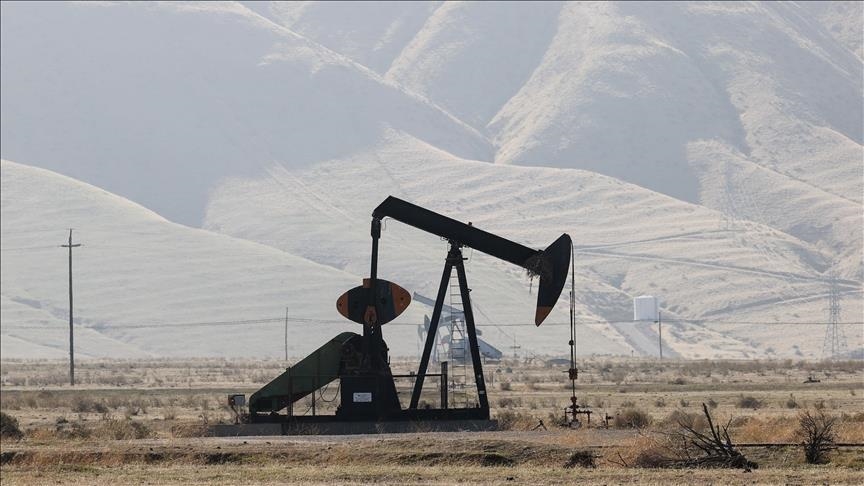

By Anadolu Agency
ANKARA
Oil prices increased on Wednesday following a strong demand outlook in the world’s largest oil consumer, the US, and continuing disputes in the Red Sea, one of the world’s most frequently used shipping lanes for oil and fuel shipments.
International benchmark Brent crude traded at $86.67 per barrel at 10.12 a.m. local time (0712 GMT), up 0.49% from the closing price of $86.24 per barrel in the previous trading session.
The American benchmark West Texas Intermediate (WTI) traded at $83.19 per barrel, a 0.45% rise from the previous session, when it closed at $82.81 per barrel.
Both benchmarks rose during early Asian trade, with the fall in US commercial crude oil reserves reflecting market perceptions of strengthening domestic demand.
Data released by the American Petroleum Institute (API) late on Tuesday showed a decrease of 9.16 million barrels in US crude oil inventories, against the market prediction of a draw of 400,000 barrels.
Official statistics from the Energy Information Administration (EIA) will be released later in the day, and if a decrease in crude and gasoline stockpiles is confirmed, prices are expected to climb further.
Meanwhile, the American Automobile Association estimated that trips during the Independence Day holiday on July 4 will increase by 5.2% compared to last year, and car travel alone will be 4.8% higher compared to the same period.
Moreover, in solidarity with Palestinians in Gaza, Yemen’s Houthi group continues to target cargo ships in the Red Sea owned or operated by Israeli companies that are transporting goods to and from Israel.
The group said Tuesday that it attacked a “vital target” in Haifa in northern Israel with cruise missiles.
“In support of the oppressed Palestinian people, our forces, in cooperation with the Iraqi Islamic Resistance, carried out a joint military operation,” Yahya Saree, the group’s military spokesperson, said in a recorded brief.
He said the operation targeted “a vital location in Haifa with several cruise missiles and successfully achieved its objectives,” without providing details.
These developments are raising supply concerns among market players by generating the idea that the conflict in the region could disrupt oil transportation routes and support further price rises.
We use cookies on our website to give you a better experience, improve performance, and for analytics. For more information, please see our Cookie Policy By clicking “Accept” you agree to our use of cookies.
Read More